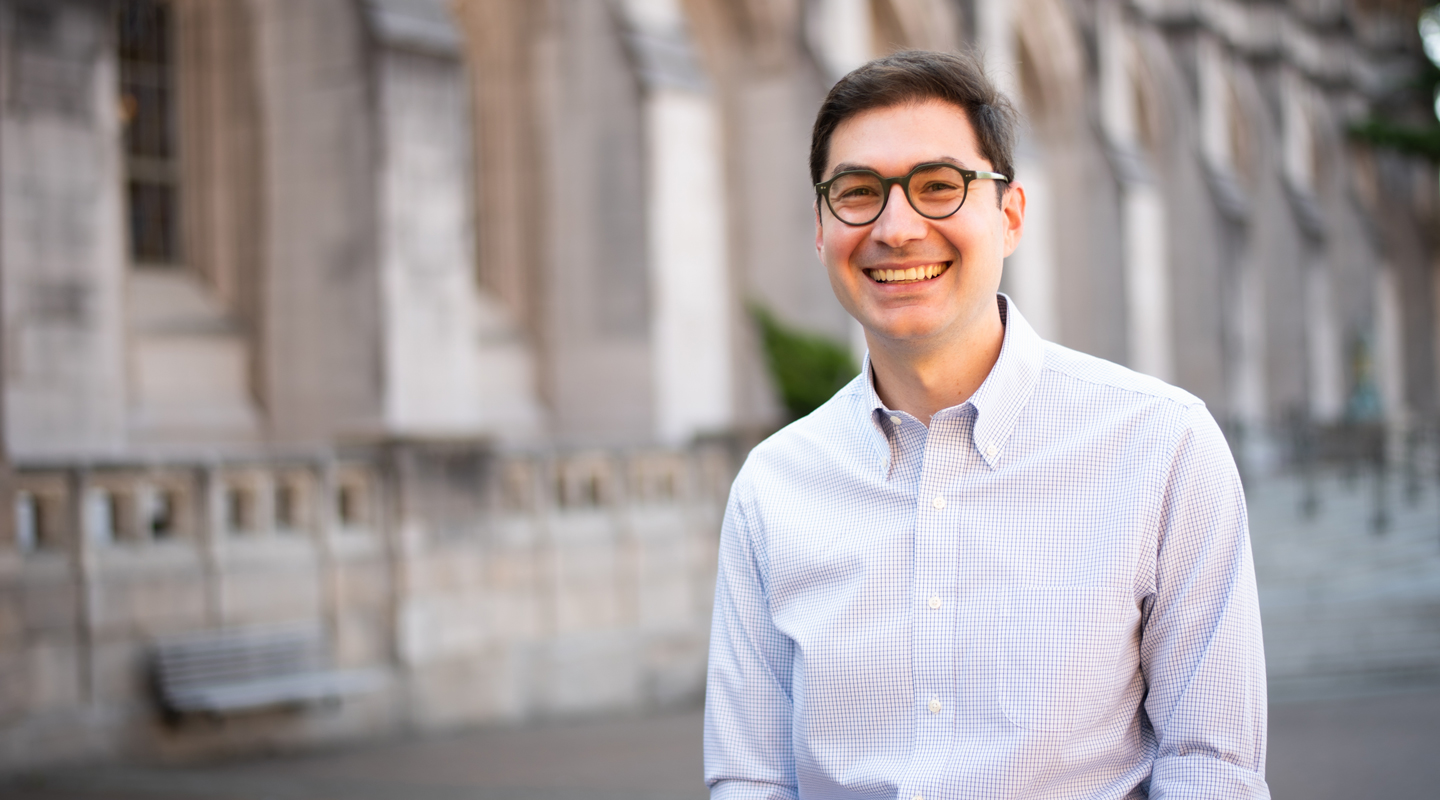Democracy requires talking with different people, listening to them, trying on their points of view, even if you don’t agree with them. But those healthy conversations are increasingly rare in the politically polarized world online, says new iSchool Assistant Professor Martin Saveski.
Left or right, people are stuck fast in their partisan internet corners, with often toxic consequences. “It’s no longer that we disagree on a particular issue, it’s that we don’t want to engage at all, and that’s problematic,” says the innovative researcher, who has a Ph.D. from the Massachusetts Institute of Technology and recently completed postdoctoral studies at Stanford University’s department of Management Science and Engineering.
Working with major tech and media companies, Saveski has used large-scale social data and computational methods to explore how digital social platforms might be reimagined to bridge these gaping political divides, whether it’s seeding positive conversations online or stopping toxic ones in their tracks.
In a widely covered experiment on Twitter (recently renamed X by owner Elon Musk), Saveski took the lead in developing a browser extension called FlipFeed. With the touch of a button, participants could see the real-life news stories, commentary and other online content of someone with opposing political views. “The idea was to put users in someone else’s shoes and help them understand why others hold the views they do,” he says.
The researchers found that FlipFeed enhanced engagement but not an understanding of why someone held divergent points of view, although understanding was greater when participants imagined they were in a disagreement with a friend.
Many scholars believe that media outlets are important drivers of online polarization, says Saveski. In a project with the PBS documentary series “Frontline,” a favorite of liberals, he helped pioneer new methods to widen audiences’ political diversity. His team analyzed right- and left-leaning media content — from Fox News to The New York Times — and used the data to build language models for “Frontline” journalists. These models helped them write promotional material designed to better bridge political divides online. “Our tools, trained on large amounts of data, were designed to assist them in their writing by giving them immediate feedback on whether the content they wrote would be engaging to audiences across the political spectrum,” he says.
Saveski’s work has earned him mention in major national news stories and garnered numerous honors, including a 2021 Rising Star in Data Science award from the University of Chicago. “Martin's research has really been changing how we measure and thus think about social processes in the modern online world,” says his Stanford mentor, associate professor Johan Ugander.
The work is as challenging as it is critical. In an early experiment with Twitter, Saveski and MIT collaborators used data visualization tools to expose a sample of tweeters to their own left- or right-leaning political bubbles in the aftermath of the 2016 elections. Were they surrounded online by people who thought just like them? Did they realize it? Did they care?
Their awareness changed from the bird’s-eye exposure; their behavior not much, to Saveski’s disappointment. “Many participants said, ‘Yes, I know that my connections are homogeneous, and I’m not interested in seeking out more diverse political connections or consuming more politically diverse content.’ They were just happy to stay in their echo chamber.”
Not everyone is stuck, however. Working with researchers at Facebook, Saveski started looking for people who initiated healthy online conversations. “We were inspired by the people in our offline lives who were great party hosts, those who are particularly good at bringing people together and prompting conversations among them. We wondered if such people also existed online.”
They do. The researchers call them “social catalysts” — social media users who bring people together and spark positive, meaningful conversations. Studying their behavior is important to Saveski’s goal of minimizing the harm and maximizing the benefits of social media platforms.
The iSchool assistant professor says he is excited to explore new directions in his research at the UW, developing more sophisticated interventions to promote democratic ideals online. “Rather than solely focusing on reducing political polarization online, I’m excited to think more broadly about embedding democratic values in the design of social media platforms and the algorithms that power them.”
At the same time, he’ll be working on new methods to contain the spread of online misinformation. He’s intrigued by new techniques for crowd-sourced fact-checking on X (Twitter). “Does this kind of fact-checking find misinformation effectively, does it prevent its spread, does it increase engagement?”
Off-hours from university work, Saveski plans to hit the slopes. He grew up skiing and snowboarding in his home country of Macedonia, where he recently returned to get married. He and his new wife are also planning Northwest camping adventures. “I am excited to explore the nature that everyone keeps talking about here in Seattle,” he says.
